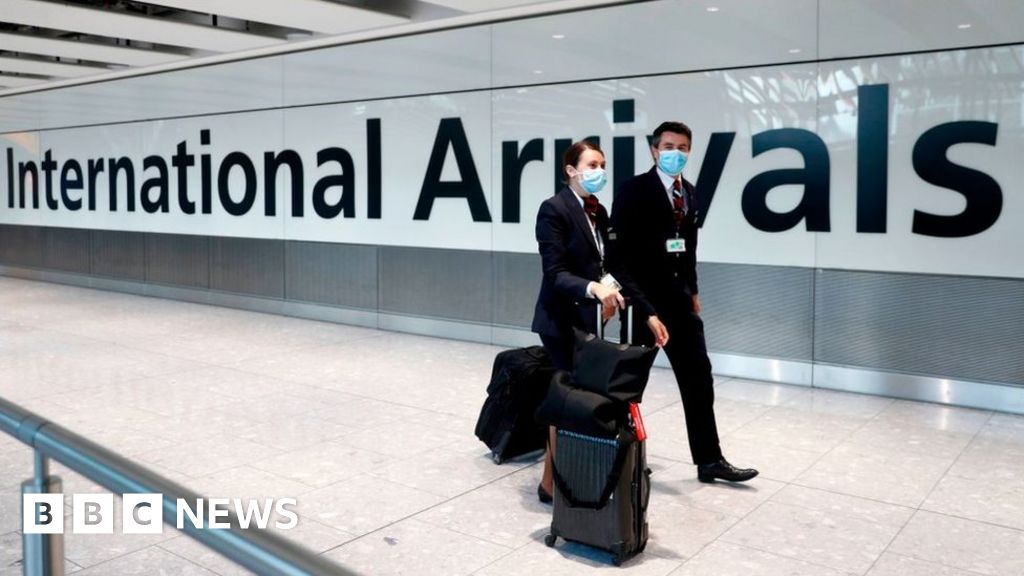Image copyright
AFP
British Airways pilots have voted to accept a deal that will temporarily cut pay by 20% and eliminate 270 jobs, says the pilots’ union Balpa.
The deal prevents a controversial “fire-and-rehire” scheme where staff would have been handed new contracts “on worse conditions”.
The 20% pay cuts will reduce to 8% over two years and to zero in the long term.
The ballot result saw 85% of members accept the deal on an 87% turnout.
“Our members have made a pragmatic decision in the circumstances, but the fact that we were unable to persuade BA to avoid all compulsory redundancies is bitterly disappointing,” said Balpa general secretary Brian Strutton in a statement.
BA said it was facing an “enormous challenge” and that it did not expect to return to 2019 levels of business “until at least 2023”.
The airline had proposed to make 12,000 staff redundant, as it struggles with the impact of the coronavirus pandemic, with 1,255 pilot jobs at stake.
Balpa said there would still be some compulsory redundancies, estimated at 270 jobs, although that number is “likely to fall” as BA will be working with the union to mitigate the impact of the changes.

Media playback is unsupported on your device
On 28 July, trade union Unite threatened industrial action against the airline “with immediate effect” over plans to hand staff their notice and then rehire them on new contracts with unfavourable terms.
Talks with other BA staff, such as cabin crew, engineers and office staff, are still continuing.
Many airlines are struggling to survive as the pandemic severely disrupts global travel.
The plunge in travel will drive airline losses of more than $84bn (£66bn) this year, the International Air Transport Association has warned. It said last month that 2020 revenues would drop to $419bn, down 50% from 2019.
BA has insisted that it is doing its best to save jobs. On Thursday, Willie Walsh, the boss of BA owner IAG, told the BBC that the coronavirus crisis was the worst the company has faced in its history.
IAG reported a loss of €4.2bn (£3.8bn) for the first half of the year, and Mr Walsh said it would take until at least 2023 for passenger levels to recover.
However, there is anger from staff over the way BA has approached job cuts, according to the BBC’s business correspondent Theo Leggett.
For cabin crew, there is not only the threat of redundancy, but also the possibility of big pay cuts for long-serving staff.
Many of those affected believe the company is using the current crisis to force through changes it has wanted to make for years.
Longer-serving crew at BA have contracts which are, by modern standards, relatively generous. They date back to an era when the airline industry was less ferociously competitive, before the emergence of budget carriers such as Ryanair and Easyjet forced older airlines to cut costs and change their business models.
In a statement, BA said: “This is an incredibly difficult time for everyone at British Airways and we are grateful to Balpa and our flight operations team for the work they have done to reach this agreement and save hundreds of jobs.
“The financial results show the enormous challenge British Airways faces as it contends with the impact of the global pandemic and government travel bans, reducing demand for travel very significantly.
“We do not expect our company to return to 2019 levels of business until at least 2023 and therefore we need to act now to reshape our company for a very different future.”

